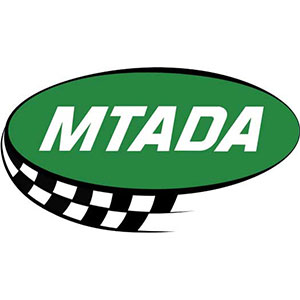- 2005. MTADA offered no legislation regarding the Montana Dealer Law during the 2005 session. The session concluded with a favorable resolution of most of the bills of general interest to the business community that MTADA took an interest in.
- 2007. MTADA offered legislation to permit franchised dealers to display and sell new cars at out-of-county sales where the subject county has no franchised dealers and is part of the dealers’ “area of responsibility.” In 2007, Montana had 22 counties with no franchised dealer. MVD and the OEMs supported the proposal, which was enacted. Other legislation included:
- 61-4-123(3)(b) was revised to permit vehicle storage on property owned, leased, or rented by a dealer that is not contiguous to the dealer’s established place of business.
- MVD bill was enacted regulating automobile brokers with support from MTADA. It allows a joint commercial endeavor (Costco) display, limited to 90 days in any calendar year.
- 2009. MTADA succeeded in amending 61-4-202:
- The regulation of additional franchises by OEMs was modified;
- It was required that incentives be paid within 30 days of receipt of the claim from the dealer. OEMs were prohibited from denying warranty claims based solely on a dealer’s incidental failure to comply with a specific claim processing requirement that does not put into question the legitimacy of the claim.
- OEMs were prohibited from penalizing a dealer for a vehicle sold that ended up in a foreign country. A rebuttable presumption was added that the dealer did not know or could not have reasonably known that the vehicle would be shipped to a foreign country if the motor vehicle was titled in one of the 50 States.
- OEMs were prohibited from adding fees or surcharges or raising prices in Montana to make up for the requirement that warranty parts and services be reimbursed at retail rates.
- OEMS were required to compensate a dealer when an OEM dropped a line make.
- 2011. MTADA offered no legislation regarding the Montana Dealer Law during the 2011 Session but, in conjunction with other business associations, took positions in opposition to anti-business bills.
- 2013. MTADA succeeded in passing the following legislation during the 2013 Session:
- Demo Plates were permitted to be used on service loaners. This language has now been replaced by the Loaner Plate authority passed during the 2019 Session.
- 61-3-201(2)(c) was amended to allow a nonresident with a place of abode in Montana to register a vehicle here.
- 30-11-705 was amended to require an OEM to repurchase special equipment and signs from a terminating dealer.
- 61-4-207 was amended to provide that an OEMs desire for a reduced presence in the state is not a good cause for the termination of a dealer.
- 61-4-208 was amended to prohibit an OEM from requiring that goods or services be purchased from its preferred vendor where the goods or services of like kind, quality and design are available from a vendor of the dealer’s choice.
- 2015. MTADA offered no legislation regarding the Montana Dealer Law during the 2015 session. MTADA did cooperate with the MDV on a few revisions, particularly revising the requirement that dealers have actual possession of titles on used units before a sale. Copies are permitted.
- 2017. MTADA succeeded in passing the following legislation during the 2017 Session:
- The OEMs contractual right of first refusal was declared unenforceable in Montana.
- The provision of the Dealer Law describing what constitutes “good cause” for the termination of a dealer in 61-4-207 was amended to require that the analysis of the subject dealer’s sales consider those metrics that are essential, reasonable and not discriminatory. Metrics must consider the franchisee’s local market variations beyond adjusting for the local popularity of general vehicle types.
- Specific language was added to the Luxury Tax law provisions to exclude the motor vehicles or the sale, lease, rental, loan or providing of any item, product or service by a “Franchisee” as defined in 61-4-201(7).
- 2019. The 2019 Session was a big success for MTADA and Montana dealers. Several “real-life” issues Montana dealers experienced over the prior few years were dealt with. Each change arose from circumstances where an OEM – or a third-party vendor aligned with an OEM – exerted economic power and employed heavy-handed tactics to take unfair advantage of several Montana dealers. These modifications address the following:
- It was recognized that dealers collect information from their customers and store said information in electronic data management systems and that the manner in which third parties can access and use the information should remain with the dealer.
- The OEMs obligation to a dealer whose franchise agreement is canceled was clarified by requiring that OEMs must repurchase signs and special tools. A payment timeline was added with financial penalties for nonpayment.
- One modification added the retirement of the dealer to the circumstances where a manufacturer is required to honor the designation of a family member as successor dealer for the franchise.
- The method used to set the warranty reimbursement rate was revised. The new provisions completely replace the prior language of the Code regarding warranty reimbursement.
- The add-point provisions were further revised, limiting the frequency of add-point attempts, requiring that additional information on the new dealer be included in the notice and allowing a dealer who successfully objects to recover their costs and attorney fees.
- 2021. MTADAs Legislative program for the 2021 Session included updates to the 2019 warranty laws. These laws allow the use of the dealers’ retail labor time guide, the issuance of loaner plates, and mediation and administrative hearings before the MVD for dealer/OEM disputes. These laws also authorize MTADA to act as the Plaintiff in general interest litigation against an OEM.
- The resolution process for OEM/dealer disputes was changed. A mandatory mediation process was created as the first step to resolving any dispute between an OEM and a dealer. If unsuccessful, the next step is filing a petition with DMV following the same procedures used for dealer termination proceedings. The hearing officer’s decision is still subject to appeal to the state District Court and the Montana Supreme Court.








